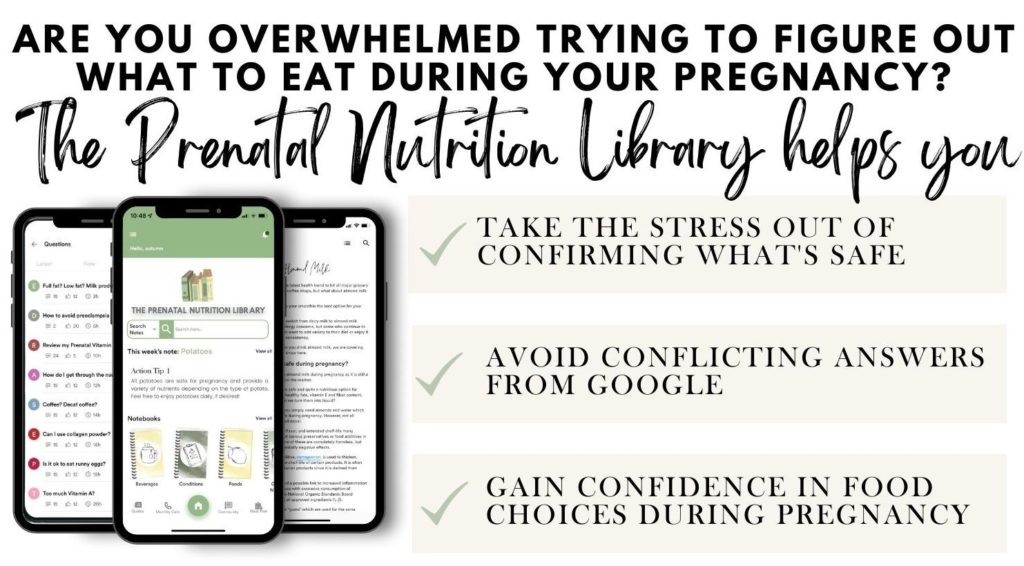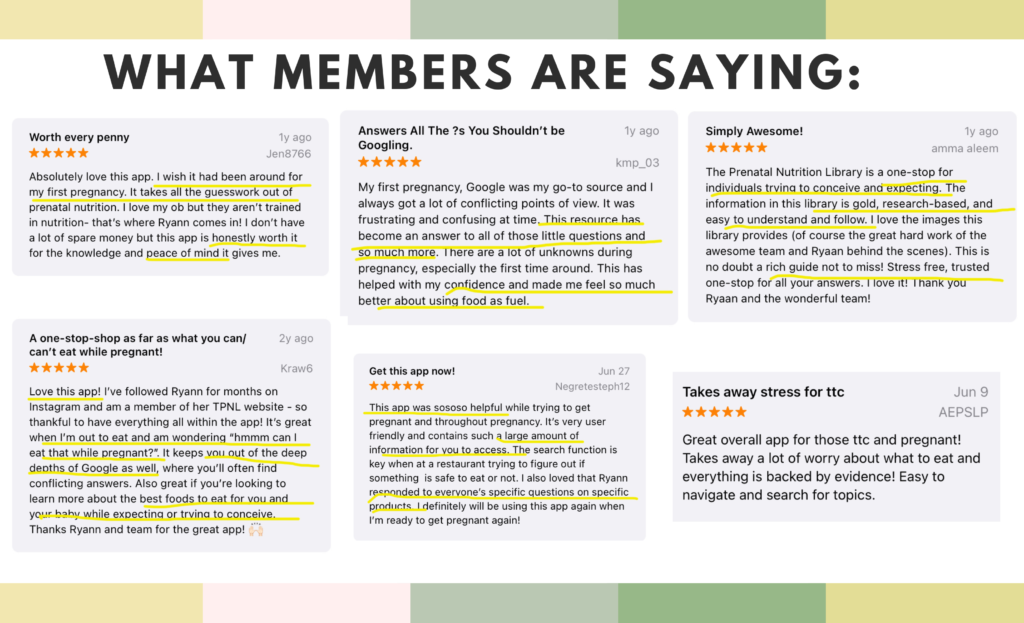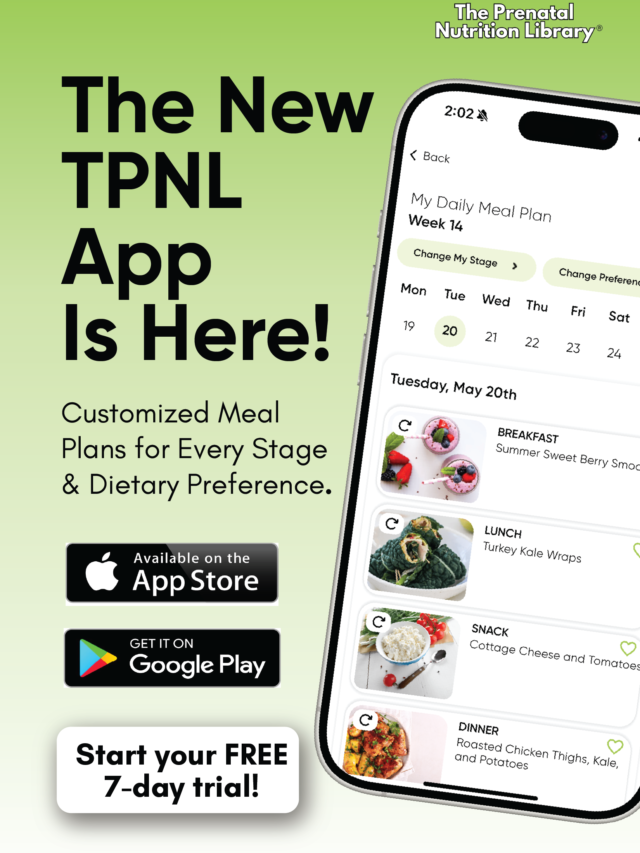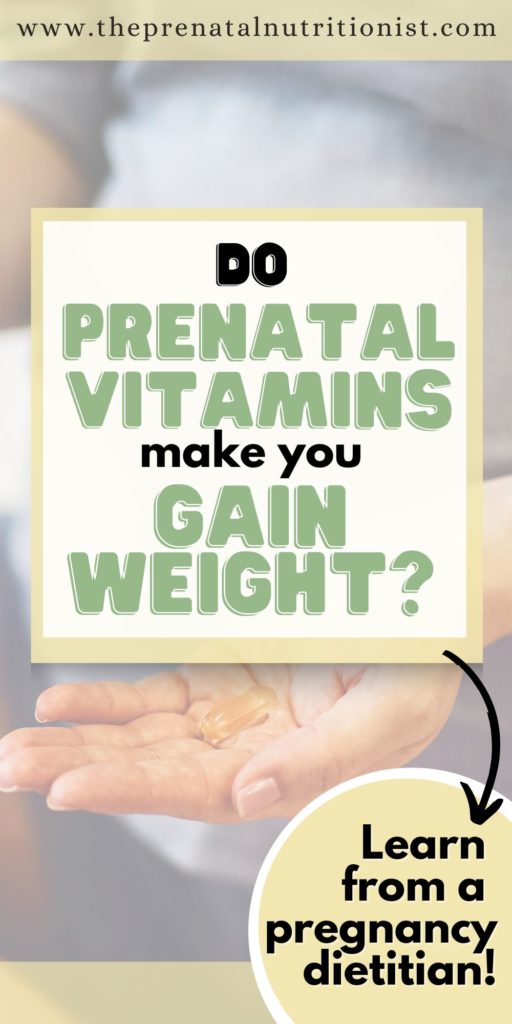
Prenatal vitamins are supplements designed to meet the nutrient needs of pregnant women. There is a vast array of prenatal vitamin supplements on the market, and quality and nutrient contents will vary. Usually, these supplements contain key nutrients like folate, magnesium, choline, and more, which are crucial for a healthy pregnancy. Despite being focused primarily on pregnancy, prenatal vitamins are also often beneficial during preconception and postpartum.
It’s true! Of course, we want to prioritize food first. That said, prenatal vitamins are appropriate for women to start when trying to conceive. Several nutrients support egg health and quality, as well as hormone health. Additionally, a prenatal vitamin supplement can help ensure that nutrient needs are met. While prenatal vitamins play a key role in maternal and fetal health, some things should be considered before taking them.
There’s no one best prenatal vitamin for everyone, but there are several key things to look for in a prenatal vitamin. The best choice should be personalized to you. It should consider your health history, diet, labs, preferences, budget, etc.
In this post, we’ll explore one question or concern for many pregnant people. The question is: do prenatal vitamins cause weight gain? Let’s explore below to understand if this is a fact or myth. We will also discuss some of what’s inside prenatal vitamins!
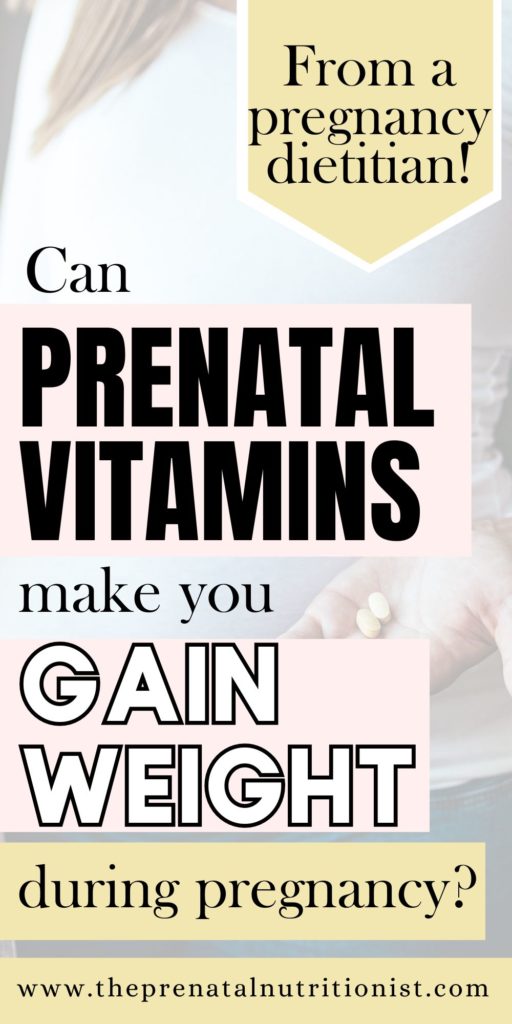
Do Prenatal Vitamins Make You Gain Weight?
Prenatal vitamins do not cause weight gain during pregnancy. The primary purpose of prenatal vitamins is to ensure that both mom and baby meet nutrient needs. These supplements help to fill micronutrient gaps. They generally do not have calories unless they come in powders or gummies. Gummies and powders may have a few calories and grams of added sugar. Even so, it will not be large amounts.
With that said, certain nutrients can contribute to bloating and constipation. These symptoms can leave you feeling sluggish and “weighed down.” Iron is a common culprit.
There’s good news, though! A variety of nutrition and lifestyle approaches can help. Below, we will examine common nutrients in prenatal vitamins and review some reasons why these nutrients are important.
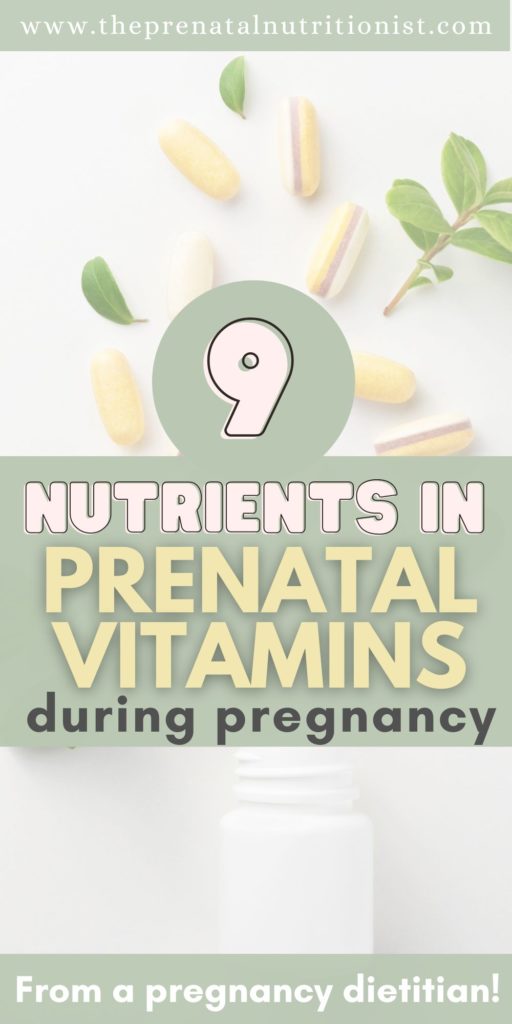
What is in Prenatal Vitamins?
Folate
Folate is crucial during pregnancy. This nutrient helps prevent neural tube defects. It’s hugely involved in DNA synthesis and cell division. This makes it vital for the growth and development of the baby. Especially for a baby’s brain and spinal cord development. Folate also plays a big role in metabolizing amino acids and is necessary for red blood cell production. Getting enough folate helps prevent anemia in pregnant women.
Iron
Iron is essential for producing hemoglobin. This is the protein in red blood cells that carries oxygen. During pregnancy, a woman’s blood volume increases. This increases the need for iron to support the mom and the developing baby. Not getting enough iron can lead to a deficiency or anemia.
Getting enough iron is key. However, not everyone needs a supplement. It’s important to get an iron panel lab test done. Also, be sure to eat plenty of iron-rich foods. If an iron supplement is needed, choose a form like iron bis-glycinate, which is more gentle on the stomach.
Calcium
Calcium is vital for building the baby’s teeth and strong bones. It also supports the mother’s bone health during pregnancy. Calcium plays a role in muscle function. Getting the right amount of calcium can help to prevent maternal high blood pressure and reduce the risk of preeclampsia.
Vitamin D
Vitamin D is important for calcium absorption and immune function. It supports healthy bone development in your baby. Vitamin D may also affect blood pressure and blood sugar management.
DHA (Docosahexaenoic Acid)
DHA is an omega-3 fatty acid that supports brain and eye development in the fetus. It’s included in some prenatal vitamins, but more often, it’s a separate supplement. Fatty fish and seafood are a great source of omega-3s. A supplement will likely be needed if you’re not eating fish a few times per week.
Iodine
Iodine is essential for thyroid function, which is crucial for conceiving. It’s also needed to maintain a healthy pregnancy and postpartum. Thyroid health and function impact the development of a baby’s brain. Getting enough iodine helps with proper hormone production from the thyroid gland.
Vitamin C
Vitamin C is an antioxidant that supports the immune system. It also improves the absorption of iron, especially from plant-based foods. Vitamin C plays a role in collagen synthesis, skin health, bone health, blood vessel function, and blood pressure.
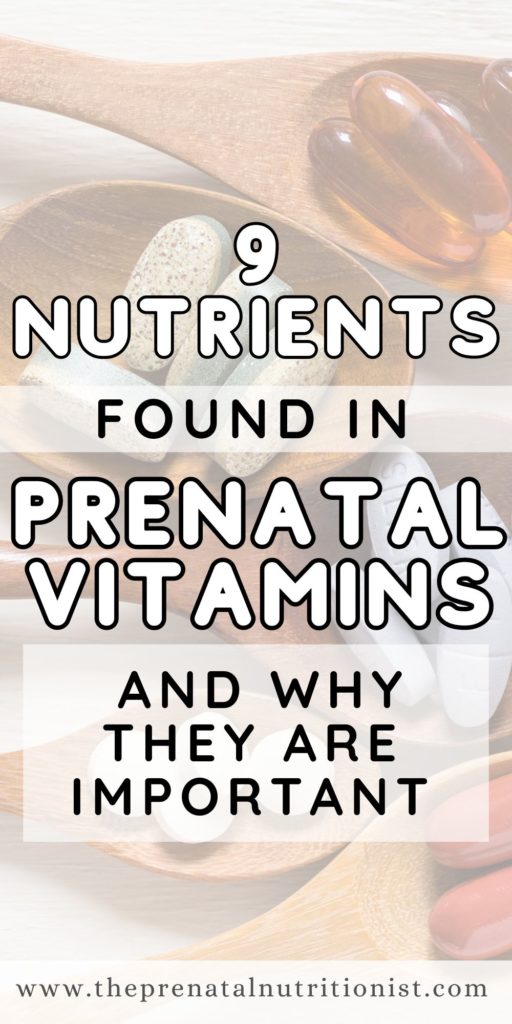
B Vitamins (B1, B2, B3, B6, B12)
B vitamins (B1, B2, B3, B6, B12) play various roles in energy metabolism and red blood cell formation. They support the nervous system and help in the synthesis of neurotransmitters. B vitamins are essential for converting food into energy. Vitamin B6 may help to curb nausea and feelings of morning sickness.
Get more nausea relief tips and strategies that work inside The Prenatal Nutrition Library App!
Zinc
Zinc supports immune function and is important for DNA synthesis and cell division, making it essential for healthy fetal development. In fact, Zinc plays a role in protein metabolism and helps maintain healthy hormone levels, contributing to overall reproductive health.
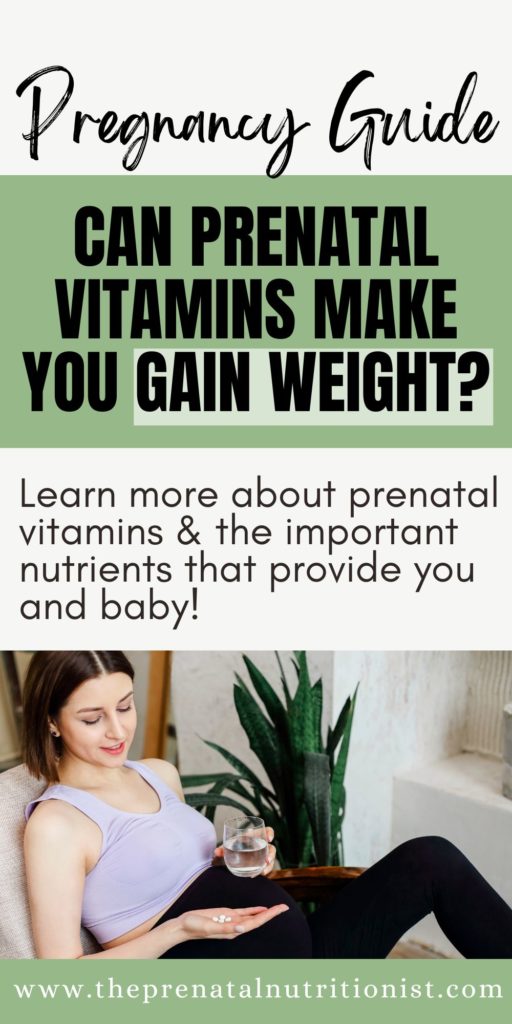
We can help you feel comfortable and confident navigating prenatal nutrition!
Paired with a well-balanced diet, prenatal vitamins can make a huge difference in filling nutrient gaps and preventing nutrient deficiencies during pregnancy. They do not cause weight gain, but certain nutrients, like iron, may contribute to bloating and constipation. If you are still concerned with weight gain during pregnancy, see our other posts regarding weight gain during pregnancy.
Pregnancy nutrition can be tough to navigate! But don’t fear–find all the tips, tricks, and evidence-based information you need when you sign up for The Prenatal Nutrition Library app. Once you sign up, you can search nutrients, foods, symptoms, and conditions, for a quick, evidence-based answer right at your fingertips.
We also offer trimester-specific meal plans to take out the guesswork completely. Sign up for my FREE 1-week meal plan to get a “taste” of what we offer!



